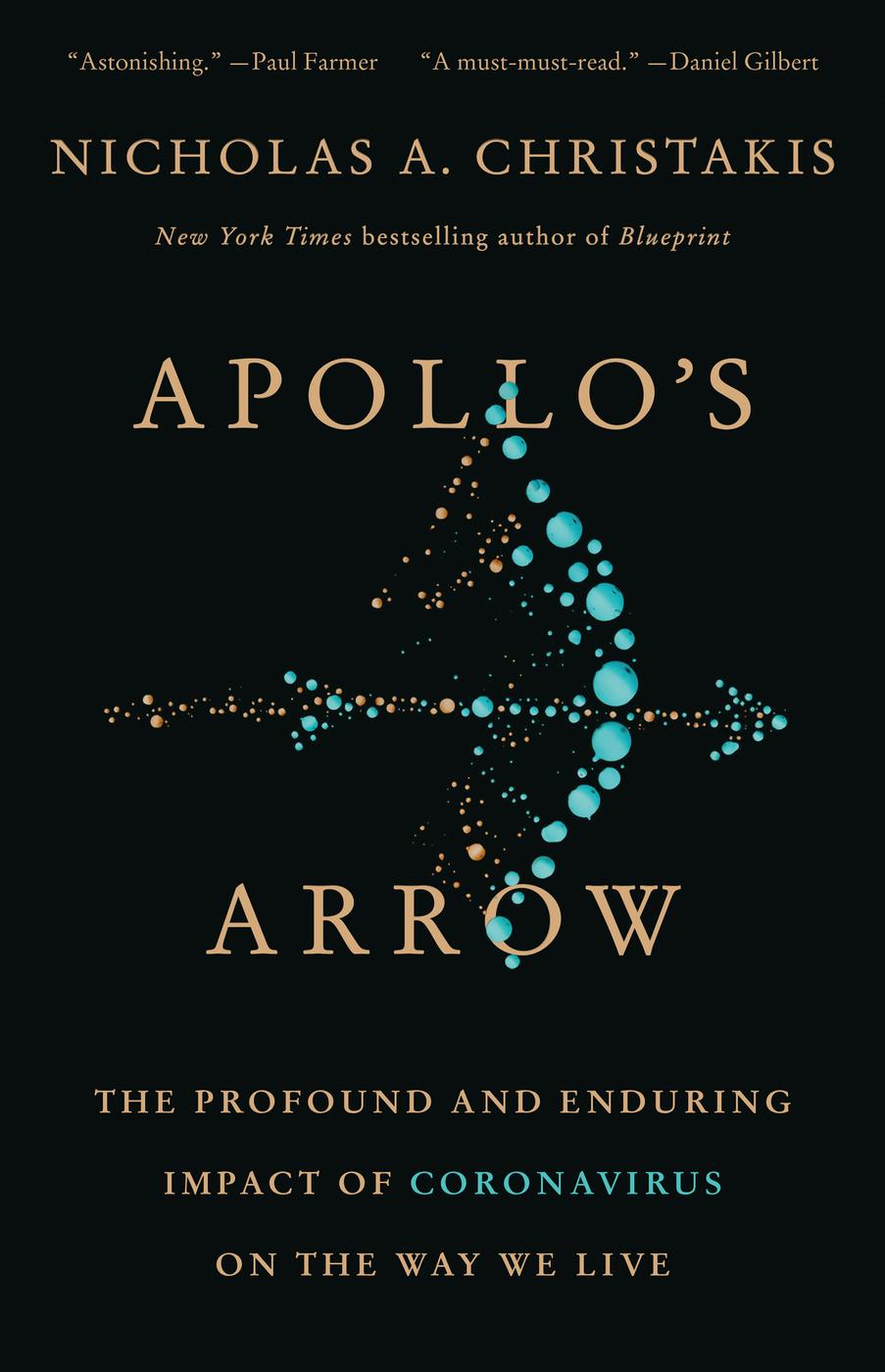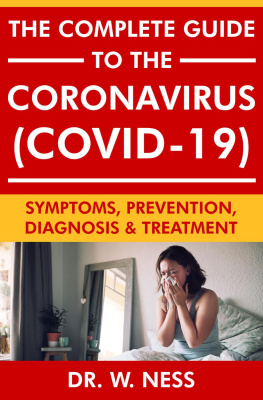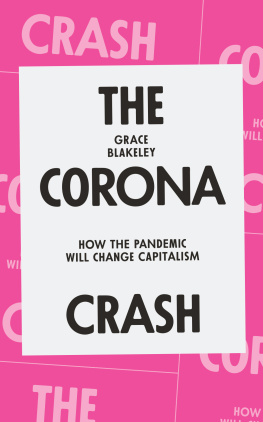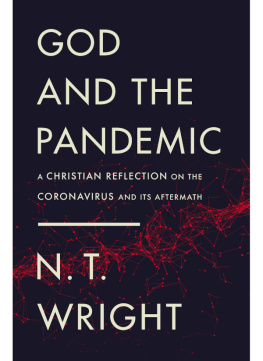
Copyright 2020 by Nicholas A. Christakis MD, PhD
Cover design by Julianna Lee
Cover art: Getty Images
Cover copyright 2020 Hachette Book Group, Inc.
Hachette Book Group supports the right to free expression and the value of copyright. The purpose of copyright is to encourage writers and artists to produce the creative works that enrich our culture.
The scanning, uploading, and distribution of this book without permission is a theft of the authors intellectual property. If you would like permission to use material from the book (other than for review purposes), please contact permissions@hbgusa.com. Thank you for your support of the authors rights.
Little, Brown Spark
Hachette Book Group
1290 Avenue of the Americas, New York, NY 10104
littlebrownspark.com
twitter.com/lbsparkbooks
facebook.com/littlebrownspark
First Edition: October 2020
Little, Brown Spark is an imprint of Little, Brown and Company, a division of Hachette Book Group, Inc. The Little, Brown Spark name and logo are trademarks of Hachette Book Group, Inc.
The publisher is not responsible for websites (or their content) that are not owned by the publisher.
The Hachette Speakers Bureau provides a wide range of authors for speaking events. To find out more, go to hachettespeakersbureau.com or call (866) 376-6591.
Illustrations designed by Cavan Huang
ISBN 978-0-316-62822-8
E3-20200924-DA-ORI
For my teacher and dear friend
Rene C. Fox,
who survived and studied epidemics, who deeply understands how illness and society intersect, and who has influenced generations of fortunate students
And for my many other teachers across a lifetime, including Paul V. Piazza, Tom S. Reese, Leopold J. Pospisil, John B. Mulliken, Allan M. Brandt, Arthur M. Kleinman, Paul D. Allison, Sankey V. Williams, and Arthur H. Rubenstein
Explore book giveaways, sneak peeks, deals, and more.
Tap here to learn more.

And [Apollo] descended from the summits of Olympus, enraged in heart, having upon his shoulders his bow and quiver covered on all sides. But as he moved, the shafts rattled forthwith upon the shoulder of him, enraged; but he went along like unto the night. Then he sat down apart from the ships, and sent among them an arrow, and terrible arose the clang of his silver bow. First, he attacked the mules, and the swift dogs. But afterward dispatching a pointed arrow against [the Greeks] themselves, he smote them, and frequent funeral piles of the dead were continually burning. Nine days through the army went the arrows of the god; but on the tenth, Achilles called the people to an assembly; for to his mind the white-armed goddess [Hera] had suggested it; for she was anxious concerning the Greeks, because she saw them perishing.
Homer, The Iliad
CDC: Centers for Disease Control and Prevention, the leading government agency charged with epidemic control, based in Atlanta, Georgia.
COVID-19: The clinical disease caused by SARS-2, involving a range of symptoms and severities; also used to refer to the pandemic itself.
NIAID: National Institute of Allergy and Infectious Diseases, the leading government agency charged with scientific research into infectious disease, based in Bethesda, Maryland.
NPI: A nonpharmaceutical intervention, such as quarantining, used instead of or in addition to drugs to combat an epidemic.
PPE: Personal protective equipment, such as masks, face shields, gloves, etc., worn by health-care personnel and others to avoid contracting an infection.
SARS: Severe acute respiratory syndrome, a serious clinical illness involving shortness of breath that can result from infection with various pathogens or from other injuries to the lungs; also used as the name of a condition caused by the SARS-1 virus.
SARS-1: Virus from the coronavirus family that emerged in 2003 and caused a small pandemic.
SARS-2: Virus, also known as SARS-CoV-2, from the coronavirus family that emerged in 2019 and caused a large pandemic.
The gods of Greek mythology were ever present in my childhood. They were constant companions of my imagination, the subjects of my immigrant parents bedtime stories, and even the names of children I played with when we visited our cousins in Greece. I was fascinated by the gods duality: immortality and power contrasted with frailty and vice. The god Apollo, for example, was both a healer and the bringer of disease. During the Trojan War, with his silver bow and quiver of arrows, he rained a plague down on the Greeks to punish them for kidnapping and enslaving Chryseis, the daughter of one of his favored priests.
I found myself thinking again about Apollo and his vengeance as I contemplated our own twenty-first-century barrage more than three thousand years after the events described in The Iliad. It seemed to me that the novel coronavirus was a threat that was both wholly new and deeply ancient. This catastrophe called on us to confront our adversary in a modern way while also relying on wisdom from the past.
Despite the advances we have made in medicine, sanitation, communication, technology, and science, this pandemic is nearly as ruinous as any in the past century. Lonely deaths. Families unable to say goodbye to loved ones or perform proper funerals and acts of mourning. Destroyed livelihoods and stunted educations. Bread lines. Denial. Fear and sadness and pain. As I write, on August 1, 2020, over 155,000 Americans and over 680,000 people worldwide have died, and many more are still uncounted. A second wave of the pandemic is imminent, whether or not the hopes for a rapid vaccine are realized.
However, even in the midst of the onslaught, many people believe that the efforts to contain the virus have been excessive. Some Americans feel that our response has been overblown, yet another reflection of this nations modern inability to accept hard realities. But I believe this thinking is wrong on two counts. First, it has required extraordinary force, including all our twenty-first-century wealth and know-how, to contain the virus to only this many deaths. I share the view of many good scientists that vastly more Americans would have diedperhaps a millionhad we failed to deploy the resources we marshaled, belatedly, in the spring of 2020 to cope with the first wave of the pandemic. To compare this COVID-19 pandemic without mitigation efforts (or even with mitigation efforts!) to a typical flu season, as some have done, is a misreading of reality. Second, it is a misreading of history to think that in our time we would somehow be spared the burden of having to deal with a pandemic or that other people in other times have not faced the same fear and loneliness, the same polarization, the same fights over masks and business closures, the same call to neighborliness and cooperation. They have.
In late January 2020, as the virus was gathering force, I shifted the work of the many talented young scientists and staff in my research group at Yale to focus on it. First, working with Chinese colleagues, we published a study that used the mobile-phone data of millions of people in China to track the spread of the virus in January and February 2020. Then my lab began to plan studies of the biology and impact of the virus in the isolated region of Copan, Honduras, where we had a long-term field site and close relationships with thirty thousand residents in one hundred seventy-six villages. We also started exploring how mass gatherings, like elections and protests, might intersect with the spread of the virus throughout the United States. And in May 2020, we developed and released Hunala, an app based on network science and machine-learning techniques that people could use to assess their risk of infection.







